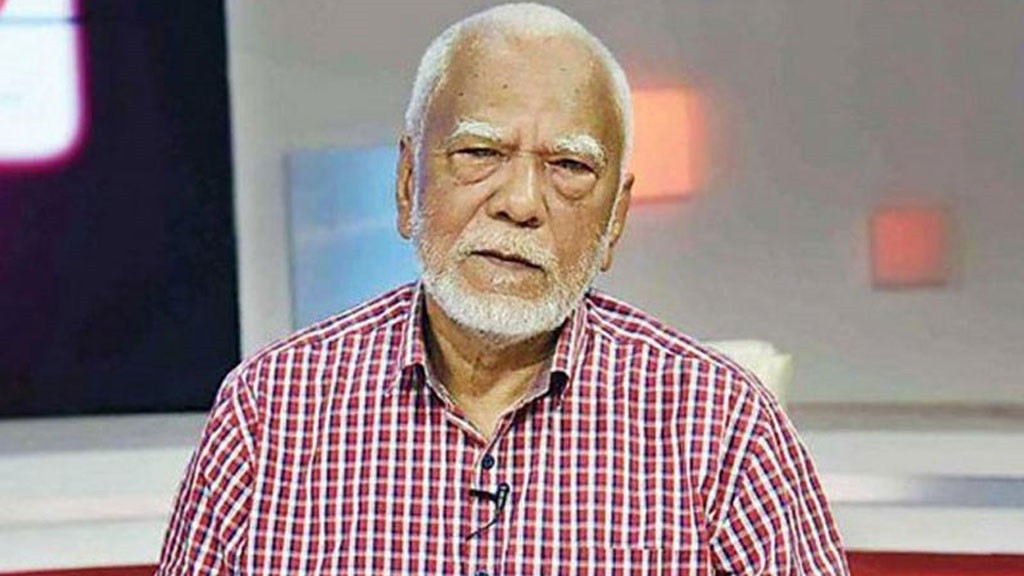05/19/2025

Bangladesh must avoid IMF’s debt trap: Abu Ahmed
Staff Correspondent | Published: 2025-05-18 12:35:43

Chairman of the Investment Corporation of Bangladesh (ICB) Professor Abu Ahmed said that the country must not fall into the IMF's debt trap.
He made the statement during a shadow parliament debate organised by Debate for Democracy on Saturday at the FDC in the capital.
The session, titled “IMF Loan Approval Will Bolster Development Partners’ Confidence”, addressed ongoing concerns about Bangladesh’s fiscal future and the conditions attached to international financial assistance.
Professor Ahmed remarked that following the IMF’s requirement to allow market-based exchange rates for the dollar, there is hope that the value of the taka will not deteriorate further. However, he warned of the danger posed by mafia syndicates hoarding dollars, stating, “Such groups must be closely monitored. We have already seen the rise and fall of a mafia economy, and we hope that era has come to an end.”
He lamented the looting of banks once regarded as strong, including Islami Bank. "Thieves and looters embezzled depositors’ foreign currency holdings and siphoned them abroad, leaving Bangladesh Bank and the entire nation in distress. Recovering this stolen wealth will be a major challenge," he noted.
Chaired by Hasan Ahmed Chowdhury Kiron, Chairman of Debate for Democracy, the shadow parliament featured a vigorous discussion on the state of Bangladesh’s economy and reforms.
Professor Ahmed also addressed the ongoing reforms in the tax administration. “The abolition of the NBR and its bifurcation into tax policy and tax administration should not be met with protests unless the objections are based on sound logic. If it’s driven by corrupt motives, that would be unfortunate,” he said, stressing that such reforms could bring long-term benefits. “This kind of revenue structure exists in many other countries. The previous government left behind a debt of USD 103 billion. Currently, we are repaying USD 2 to 2.5 billion annually, and this figure will only increase in the future,” he added.
In his closing remarks, Hasan Ahmed Chowdhury Kiron said IMF loans often serve as a “certificate of credibility” that attracts further lending from other development partners, including both budgetary and non-budgetary support. However, he cautioned that merely complying with IMF conditions does not guarantee further assistance. “Unless we ensure transparency, accountability, democratic practices, and anti-corruption measures within our financial institutions, development partners will remain hesitant,” he warned.
Kiron also criticised some IMF conditions, particularly those requiring the withdrawal of subsidies, saying they often contradict public interest. “We must avoid implementing reforms that harm national or public welfare. The previous government borrowed from the IMF during a time of economic instability, while its beneficiaries laundered thousands of crores of taka abroad.”
He alleged that during the previous regime, while the economy faltered, a nexus of civil servants, businessmen, and politicians accumulated vast wealth overseas—in Europe, America, Australia, Canada, Dubai, and Singapore. “Trade-based money laundering was the most common channel. Through over-invoicing in the import of furnace oil, coal, scrap vessels, fertiliser, and other products, around USD 16 billion was laundered annually,” he claimed.
He further alleged that Bangladesh unnecessarily imported IT and software services despite having domestic capacity, and paid over one lakh crore taka in capacity charges to domestic and foreign companies without receiving any electricity in return—much of which was laundered abroad.
At the debate competition, the team from Government Shaheed Suhrawardy College emerged victorious, defeating Presidency University. The event judges included Professor Abu Muhammad Rais, Dr SM Morshed, journalists Iqbal Ahsan, Sushanta Sinha, and Arifuzzaman Mamun. Both teams received trophies, crests, and certificates at the end of the event.
Editor & Publisher : Md. Motiur Rahman
Pritam-Zaman Tower, Level 03, Suite No: 401/A, 37/2 Bir Protik Gazi Dastagir Road, Purana Palton, Dhaka-1000
Cell : (+88) 01706 666 716, (+88) 01711 145 898, Phone: +88 02-41051180-81